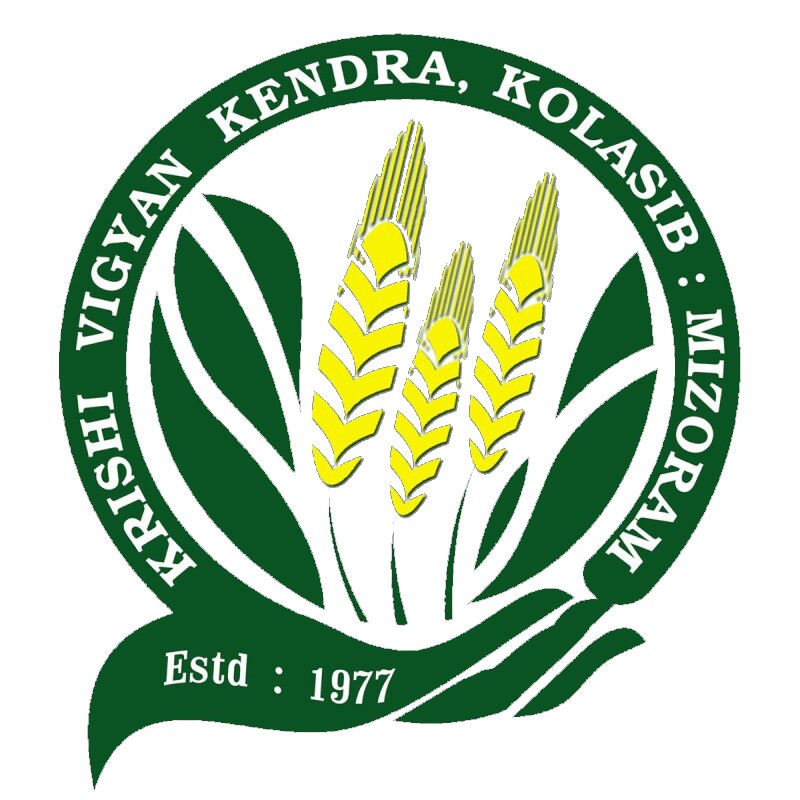Mandates & Objectives of KVK
Planning and conducting survey of the operational area in order to prepare the resource inventory with special reference to identifying the training needs of the farming community. Planning and conducting production- oriented, need-based short and long duration training courses both on campus as well as in the villages for various target groups with priority on the weaker and the poor.
Developing and organizing non-formal educational programmes by way of field days, farm visits, farmers fair, radio talk, Farm Science clubs etc. as the follow up information support to training courses. Organizing farm science clubs, both in rural schools and in villages in order to induce in younger generation a liking for and an interest for agricultural and allied sciences and scientific farming through supervised projects. Developing and maintaining the campus farms and demonstration units on scientific lines as the facilities for providing work experience to the trainees as also disseminating the latest technical know how. Providing practical facilities of the Kendra to the teachers and the students of the vocational agriculture of the higher secondary schools. Imparting some general education to rural illiterates and school drop-outs in order to make them not only good farmers but also better citizens. Providing added training facilities in the areas for home making and nutrition education for rural community.Gradually enlarging the training facilities to encompass other important areas such as home crafts , cottage industries etc. consistent to the requirements of the Integrated rural Development in collaboration with concerned organization. Implementing all such schemes of the ICAR and other related organizations which intend to strengthen the training programmes of the Kendra.
The first KVK, on a pilot basis, was established in1974 at Pondicherry under the administrative control of Tamil Nadu Agricultural University, Coimbatore. The mandates of KVKs are as follows – Conducting “On-Farm Testing” for identifying technologies in terms of location specific sustainable land use systems. Organising training to update the extension personnel with emerging advances in agricultural research on regular basis. Organising short and long term training courses in agriculture and allied vocations for the farmers and rural youths with emphasis on “Learning by doing” for higher production on farms and generating self-employment. Organising Front Line Demonstrations (FLDs) on various crops to generate production data and feed back information.
In order to achieve the above mandates, the following broad objectives would help the KVKs to develop their specific objectives – To promptly demonstrate the latest agricultural technologies to the farmers as well as extension workers of State Departments of Agriculture/Horticulture/ Fishery/ Animal Science/ NGOs with a view to reduce the time lag between the technology generation and its adoption. To test and verify the technologies in the socio-economic conditions of the farmers with a view to study the production constraints and to modify the technologies to make them appropriate. To impart trainings to the practising farmers/ farm women, rural youth and field level extension functionaries by following the methods of “Teaching by doing” and “Learning by doing’. To back-up with training and communication supports to the district level development departments viz; Agriculture/ Horticulture/ Fisheries/ Animal science and NGOs in their extension programmes.
The KVKs, thus are the down-to-earth institutions committed to vocational training, transfer of latest technologies, on farm research and thus, serving as the light house for overall rural development in the district. The activities of the KVK include technology assessment, refinement and transfer, aiming to bridge the gap between the technology developed at the research institutions and its adoption at the field level by the farmers through demonstration of technology/ products etc. and training of farmers, rural youths and extension personnel. On the basis of “India-2002”, there were 578 rural districts spread over the country and this figure has further been raised to 602 districts as per the latest data available on the internet report of NIC. In view of continuous increase in the number of districts, it is agreed to have one KVK in each district by the end of Xth plan. Realising the importance of technology assessment, refinement and transfer, the Planning Commission has allocated Rs. 500 crores specifically for the establishment of new KVKs during Xth plan period. The DDG(AE) during the 11th EFC meeting of Xth plan, held in New Delhi on 30th Sept. 2003 out lined the importance of two issues in the context of the present scenario of agriculture in India- (i) the technologies have to be assessed and refined before their transfer and (ii) a programme approach involving various technology components relevant to the farmers in varying farming situations will be required for a perceptible change. The concept of technology assessment and refinement is based on participatory mode ensuring greater scientists-farmer linkage and access to agricultural technologies generated by research systems to the farming community. For this, the role of KVKs are of immense importance for overall agricultural and rural development through its various research and technology transfer mechanisms.

















